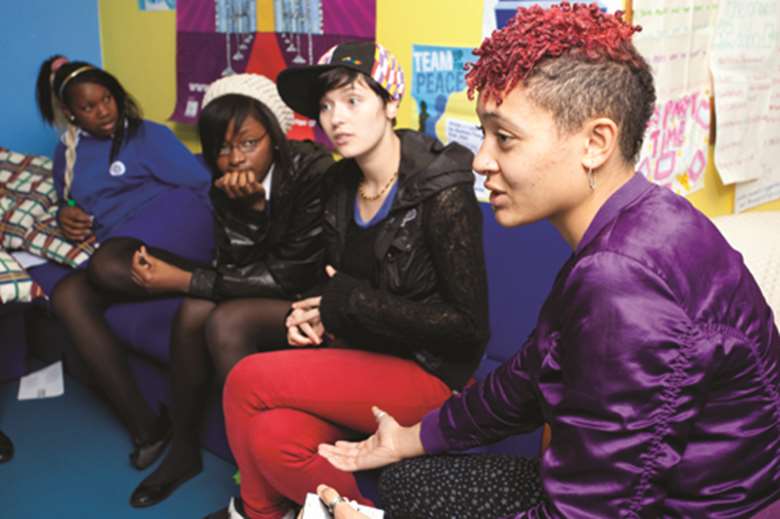Pioneering new ways of working with children, young people and adults - Social Pedagogy
YMCA George Williams College
Monday, June 6, 2016
Social pedagogy is becoming a much talked about concept for those working with children and young people. This way of working suffers from having a rather cumbersome title but it is really worth getting to know what it means as we believe it is an extraordinarily powerful and effective way of working with young people and their communities.

What is Social Pedagogy?
Head, heart and hands summarises the approach. The head, because it involves thinking, reflecting and developing ideas; the heart, because it is rooted in caring for and being emotionally connected; and the hands, because it is about doing, and making a difference.
Community connection and involvement is central to social pedagogy. This is not an individual achievement model, it is more collective and builds development through cooperation and co-learning. Individuals do achieve but do so through relationships and by contributing to and receiving from others.
With a holistic focus, social pedagogy works with the whole young person and it is a positive rather than deficit oriented model. The young person is not a catalogue of problems that need to be solved but a whole person with potential for developing and growing. The care element of social pedagogy is there to provide support to help young people who are experiencing difficulty but the expectation is for them to find inner resources to survive and thrive - and with the help of others go on to do things that make a difference.
Animation is an important part of social pedagogy. In France the animateur is someone bringing life to, enlivening and enabling change and development. This facilitating role enables deeper learning as it connects directly with the needs and experience of the child, young person or adult. This process brings life and spirit to the child or young person; it can be exciting and fun. Experiences are positive, shared and are rooted in well-being and happiness.
Exploration and enquiry are at the heart of social pedagogy with an encouragement to take risks, venture into the unknown and to realise that to learn you need to explore. The Values underpinning social pedagogy are ones of respect, equality, social justice and working alongside others. It is not about judgments and the invitation is to find out what we have in common and share these and connect. This provides an ideal environment in which to learn, grow and develop. This learning builds self-confidence, strengthens relationships and creates opportunities for further learning.
How is Social Pedagogy used?
Many projects are adopting a social pedagogy approach in the UK as they offer both care and opportunities to develop life skills and values to individuals and communities. Social pedagogues are being employed in schools, community projects, working with people with disabilities, in social work teams, in hospitals - anywhere where facilitation, development and care is needed.
In Europe social pedagogues have been employed for many years in social work agencies and in community education. In the UK this powerful way of working is being discovered in housing projects, youth centres, schools, alternative education provision, health projects and residential centres - in short, anywhere where children, young people and adults grow, live and contribute.
How can I become a Social Pedagogue?
Social Pedagogy is increasingly offered as a degree course by a number of universities. The first social pedagogue graduates qualified last year from the YMCA George Williams College.
The course at the YMCA George Williams College combines academic study with reflective practice. The three year full time or four year part time course leads to a BA Honours degree validated by Canterbury Christ Church University. The practical aspects of the course enable skills, learning and professional development and a nationally validated professional qualification.
Is it for me?
If you are interested in development, education and learning in their broadest senses, want professional qualification, and are keen to mix rigorous academic study with reflective practice, this programme may be the one for you. The ways of thinking and acting involved are highly transferable to a wide range of careers - but have special relevance for those supporting learning and development in social work agencies, schools and colleges, and in community-based organisations.
YMCA George Williams College is a specialist centre for the study of informal education, social pedagogy, youth work and community learning and offers a wide range of programmes and short courses which are unique in the UK.
Contact us: YMCA George Williams College, 199 Freemasons Road, London E16 3PY. registry@ymca.ac.uk or 020 7540 4902 / 4900
Find out more about the programme here




